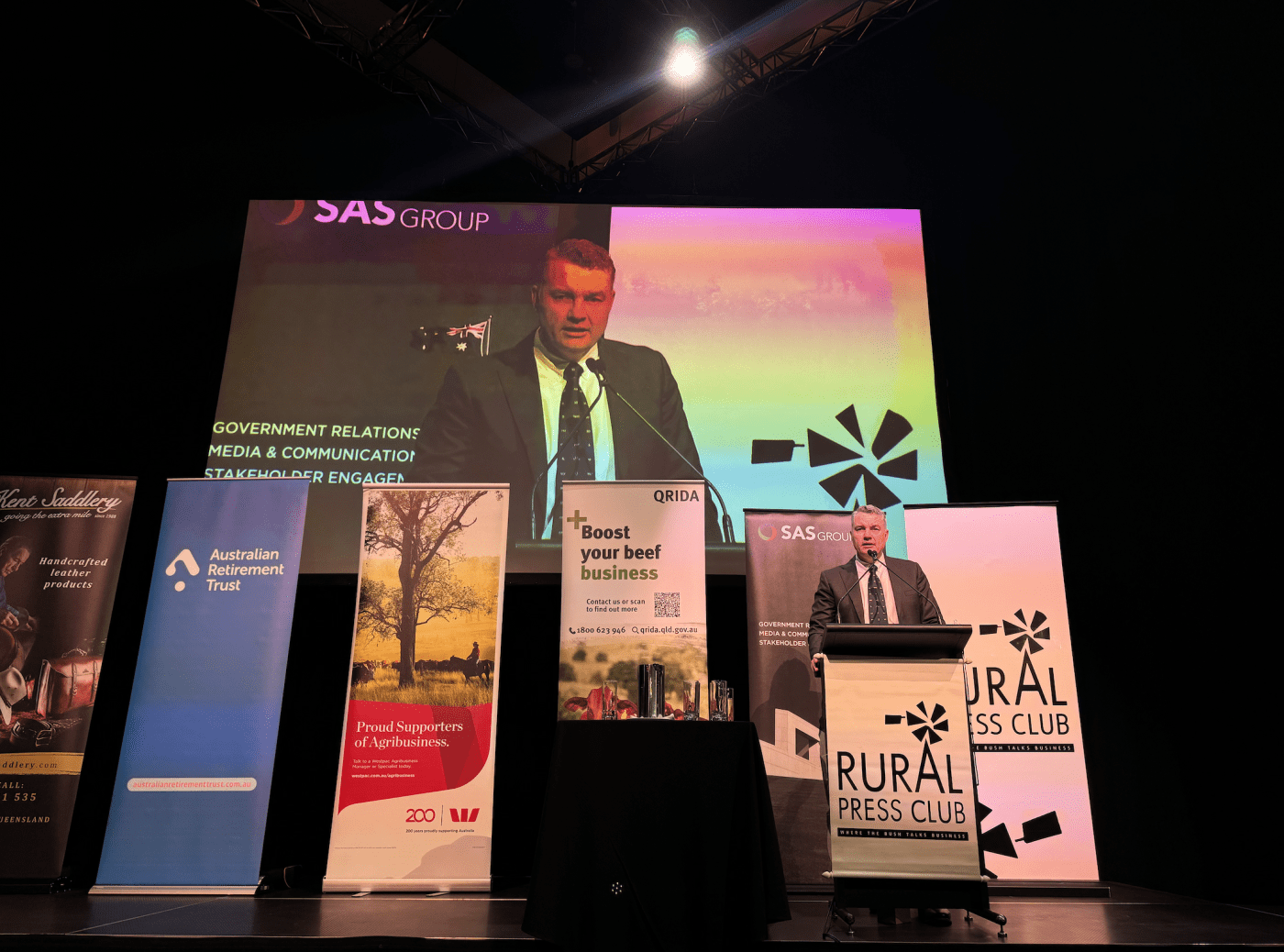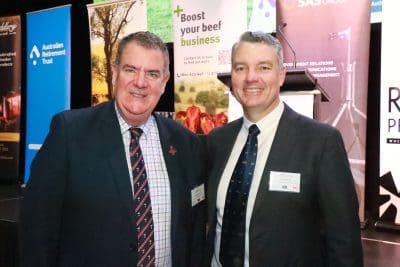AACo boss David Harris has shared how a “1-AA” strategy – “one team, working towards the same common goal” – has underpinned the evolution of the world’s biggest cattle company from a collection of many properties spread all over Australia into a cohesive and sophisticated supply chain exporting premium quality beef all over the world.
And he has taken the concept a step further to implore the broader Australia agricultural sector to adopt a similar unified approach to counter increasing attacks on the industry’s reputation and very existence – “the industry’s greatest challenge yet”.
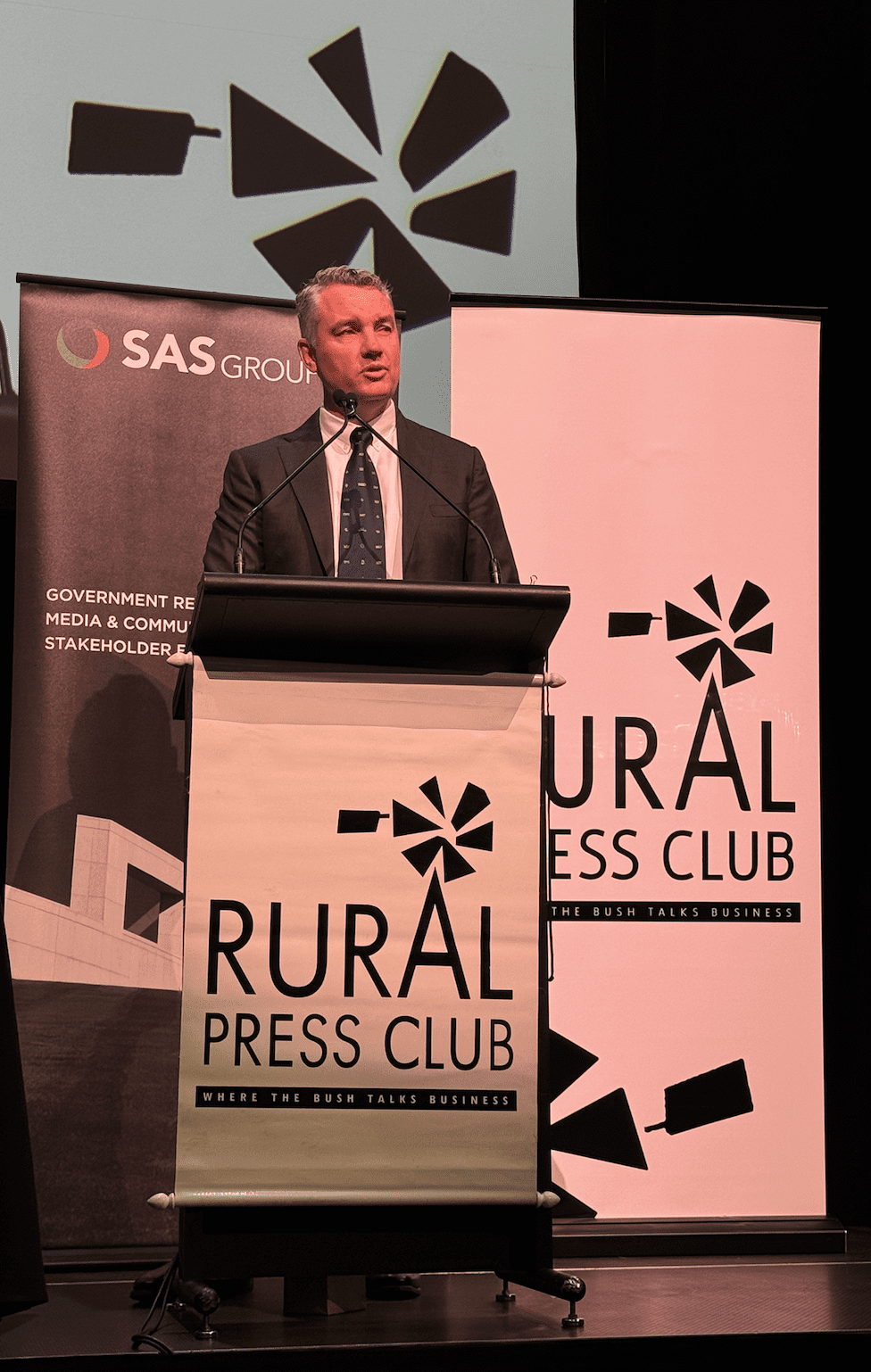 In delivering the 2024 Rural Press Club of Queensland Malcolm McCosker Memorial Address at the Royal Queensland Show on Friday, Mr Harris said the agriculture sector is “at a crossroads, with our reputation under attack”.
In delivering the 2024 Rural Press Club of Queensland Malcolm McCosker Memorial Address at the Royal Queensland Show on Friday, Mr Harris said the agriculture sector is “at a crossroads, with our reputation under attack”.
This was illustrated by the 2011 live cattle ban and the legislated phaseout of live sheep exports this year.
Agriculture was once Australia’s most important, trusted and venerated industry, but some in the sector were now being forced to fight for their very existence.
“Think of all that we have survived over the years both as a company and an industry – droughts, depressions, disease, floods, fires and more recently pandemics.
“However, I’d go so far as to say the current challenge to our reputation could be our greatest yet.”
Distilling lessons gleaned from AA Co’s 200 years of continuous operation and evolution, he said the ag sector needs to be better at working together, and needs to be better at communicating.
Far from presenting a unified voice, at times the agriculture sector seemed to be more at odds with itself, highlighted by the spaghetti map of 250 national, state and commodity-based groups that represent the industry – all jockeying for the best position and often fighting each other to control the conversation.
Meanwhile the industry was at risk of the world “passing us by”.
“With 90,000 agricultural businesses in Australia, represented by well over 250 different industry associations, it’s no wonder more time is often spent arguing with each other than looking to solve industry wide challenges that threaten us all.
“We risk losing key parts of agriculture while we fight for pieces of the pie instead of fighting to grow the pie.”
He questioned whether it was time to consolidate industry organisations or even reconsider its entire levy structure and change how and where dollars are spent.
“With unity comes power”
“With unity comes power, a seat at the table, politicians and, more importantly, customers who will listen,” he said.
AACo has adopted what it calls the “1-AA approach” – one team, working towards the same common goal.
“With that approach and with a genuine understanding and appreciation across the supply chain, we have found that positive change has come and come faster.
“We haven’t always had this. In fact, for much of our history we were a series of individual properties, operating essentially as separate businesses.
“One of our more significant achievements is how the land owned by the company over the years evolved from being a collection of many properties spread all over Australia, into a sophisticated supply chain.
“It’s something uncommon, and perhaps even unprecedented to the same scale in red meat production systems.
“And we’ve been able to do that despite our ownership model going through many fundamental changes over time – some of them more heavily talked about than others.
“Positive change is possible when you understand your purpose.”
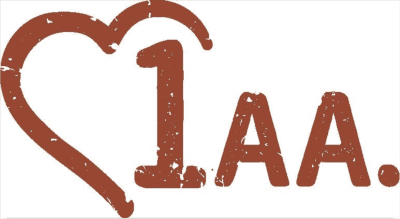 1-AA was a conscious approach to bring the operational and commercial sides together so everyone understands their purpose in the supply chain and the value they bring to the business.
1-AA was a conscious approach to bring the operational and commercial sides together so everyone understands their purpose in the supply chain and the value they bring to the business.
He said the approach illustrated that bringing together different parts of the industry, with broad backgrounds and skillsets, but with common goals and towards a common purpose, was possible.
“Imagine for a minute if 90,000 agricultural businesses were on the same page, saying the same thing.
Imagine what we could achieve. That’s worth working towards.”
‘We need to become better communicators’
In addition to working better together, his second call to action was “We need to become better communicators, which is just as much about action as it is about words”.
The Australian agriculture sector comprised 240,000 people producing enough food to feed 75 million people every year.
The sector was more important than ever, but faced a major challenge to get messages across to the 99 percent of the population not involved in agriculture.
“It’s easy to talk to ourselves, however with just one percent of the population working in Agriculture, we won’t lift our standing in the community or share the messages we need to share if we only keep talking to that same one percent.”
“Deeds deliver better stories,” he said.
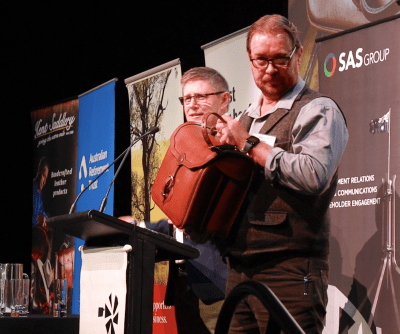
John Furness from Kent Saddlery presents the lucky door prize – a premium full-grain leather brief case that retails for $1695 – which was won by Heather Stott of the Royal Flying Doctor Service.
“Ultimately, we start with nature and for us it’s about ensuring our cattle production system creates a positive outcome for the natural assets we manage and of course positive returns for the company.
“The focus in recent times across our operations is not just what we are doing, but also how we are doing it.
“We believe now that through how we operate, we can be part of the solution to addressing nature related challenges, which will lead to a positive impact on climate.
“The action we take also creates a mechanism to better tell our story. The next challenge is how to get better at actually doing it.
“It’s a shame that more people don’t know more about our sector.”
Consumer is always right isn’t always right
He noted that while this view might be controversial, he said he was not sure that advice that “the consumer is always right” was itself always right.
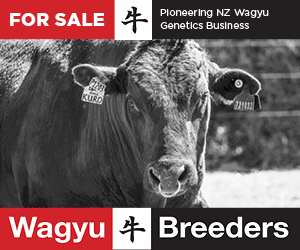 “You always need to ‘listen to the consumer’ but that doesn’t mean they are right in every case. We have a job to educate the customer and consumer.
“You always need to ‘listen to the consumer’ but that doesn’t mean they are right in every case. We have a job to educate the customer and consumer.
“That’s something I’m noticing more as AACo considers the best way to communicate with our own customers and consumers around the world.”
Sustainability and climate action were prime examples, he said.
The Australian industry already had the foundations in place to build a good story.
“Yes, there is still plenty to do, but the latest government data shows that when compared to the rest of the world, we are actually doing remarkably well on things like emissions intensity.
“Australian cattle production is already among the most sustainable in the world. It’s a simple message that’s worth sharing.”
Communicate outside the industry
He urged agricultural industry stakeholders to seize every opportunity to communicate with others outside the industry.
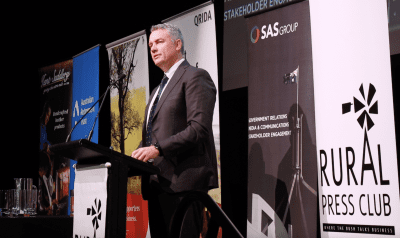 “We all have that opportunity in our own spheres. It’s something I and our station managers are extremely passionate about doing when we bring chefs or customers from major cities around the world to our properties.
“We all have that opportunity in our own spheres. It’s something I and our station managers are extremely passionate about doing when we bring chefs or customers from major cities around the world to our properties.
“Most of them come with their own pre-conceived ideas about certain parts of the supply chain, driven by misinformed headlines or generalisations. But we have an overwhelmingly positive response. Some even call it life changing.
“We are able to help them understand that the grazing systems and feedlots are sophisticated and sustainable. That they each play an important role and have high-integrity management practices that allow us to deliver premium products 365 days a year.”
The real value in reflecting on history was understanding “what it tells us about where we are today, then taking the lessons learned and building from them”.
“The industry’s collective challenge is to lead and build a stronger agricultural industry that has a bright future.
“Noting the lessons I’ve shared with you today from AACo’s 200 years of history, I’m confident that we can.
“Whatever you choose to do and whatever role you play, each of us, particularly noting the leadership and calibre of people in this room today can make a difference.
“Own your impact.”

